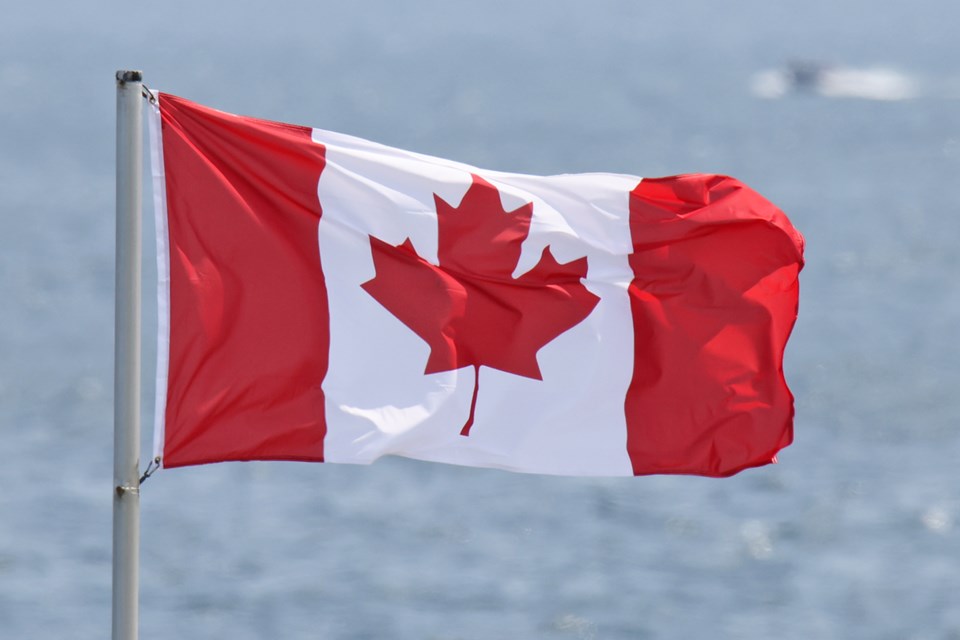In my former life I never even dreamt of becoming an expatriate or living and working anywhere but in the UK. I was married, with three growing sons, enjoyed my work as a self-employed helmsman on the Manchester Ship Canal (almost a mirror image to the Welland Canal) and lived on a 7-acre smallholding in North Wales.
Unfortunately for us, the booming trans-Atlantic container traffic, which had kept the UK’s west coast ports busy, became more profitable to the shipowners if shipping was diverted to a new Europort in Holland then transshipped to the UK’s east coast.
Our pilots’ self-employed earnings halved, as did the helmsmans’, within a two-year period.
I was lucky, as I was offered a job abroad, as a port captain in Saudi Arabia.
So, from 1985 to 2000, I lived and worked in Saudi Arabia, the Sultanate of Oman, the Turks and Caicos Islands, and on Saba, Netherland Antilles, both in the Caribbean.
I guess I was a ‘migrant worker’ in today’s media jargon.
Saudi was a nightmare but gave me ample opportunity to learn what being a ‘second class citizen', with absolutely no rights, felt like. I enjoyed my job and the Filipino and Sri-Lankan crews who worked for me were great, all ‘second class citizens’ just like I was. We were all there for the same reason, to send our families back home the financial support they needed.
I left Saudi not because of the Saudi’s intolerance for us, but because when I asked my Chinese boss to consider increasing my Sri-Lankans’ food allowance by a couple of cents a day, he flat out refused, wouldn’t even consider it.
Oman, a total change! Their version of Islam was completely unlike Saudi. They welcomed expats whether Muslim or not, and all that was expected of us ‘non-believers’ was that we respected the Omanis and their faith, and made sure we did not negatively impact them whilst still enjoying a very western lifestyle.
My two-year contract extended to eight years, some of the best years of my life, and ended when I handed over my job as a squadron commander to a young Omani officer whom I had trained. ‘Omanisation’ was a part of my contractual obligations, and I left believing I had served the Royal Navy of Oman well.
My next move, to the Turks and Caicos Islands, in the Caribbean, became the start of my ‘Beach Bum’ years. I had completed a PADI Open Water Scuba Instructor course in Oman, the first, and before I knew that my job was soon to end.
This was a whole new life, as a dive instructor and divemaster, and one that I loved. The pay was pretty lousy, but the guests were lovely and who could complain about sharing many stunning dive sites with folks who were only there because they wanted to be?
Sadly, my personal life had not survived living abroad and divorce proceedings had been staggering along since soon after my arrival in Oman, some years before I met my present wife.
Someone else who wanted to be there was a lady I had met in Oman, who joined me there, once her contract ended in Oman. Funnily enough, another ‘Canadian’ connection was to live in one of only two ‘Panabode’ cedar homes to be built on Provo. A beautiful, warm home, on a hill overlooking all 10 miles of Grace Bay beach, claimed to be one of the best in the world.
But the life of a divemaster and beach bum remains an itinerant one and my final move was to the tiny five-square mile isle of Saba, part of the Dutch West Indies, to be joined by my lady once she had sold that lovely home on Provo.
We had always planned on making Canada our home and although, as on Turks and Caicos, diving remained one of the loves of my life, I began to realize that chucking up to 60 scuba tanks around a day was really a game for the young.
We were married on Saba, I submitted my application to become a landed immigrant to Immigration Canada, and after just two short years on Saba, Alicia and I came ‘home’.
I get that I was not an ‘asylum seeker’ nor a ‘refugee’, but I was a ‘foreigner’, wishing to become a Canadian citizen. My wife agreed to be my sponsor, taking full, financial responsibility for me until the immigration process was completed, which was to take about two years.
We had no problem with this, and there was no expectation of any support from the Canadian taxpayers, nor accommodation made available, paid for by those taxpayers.
Despite all that has occurred across our world in the past 25 years, it still remains hard for me to understand how any nation can just ignore immigration policy due process that does not include responsibility on the part of many of those claiming to aspire to Canadian citizenship.



